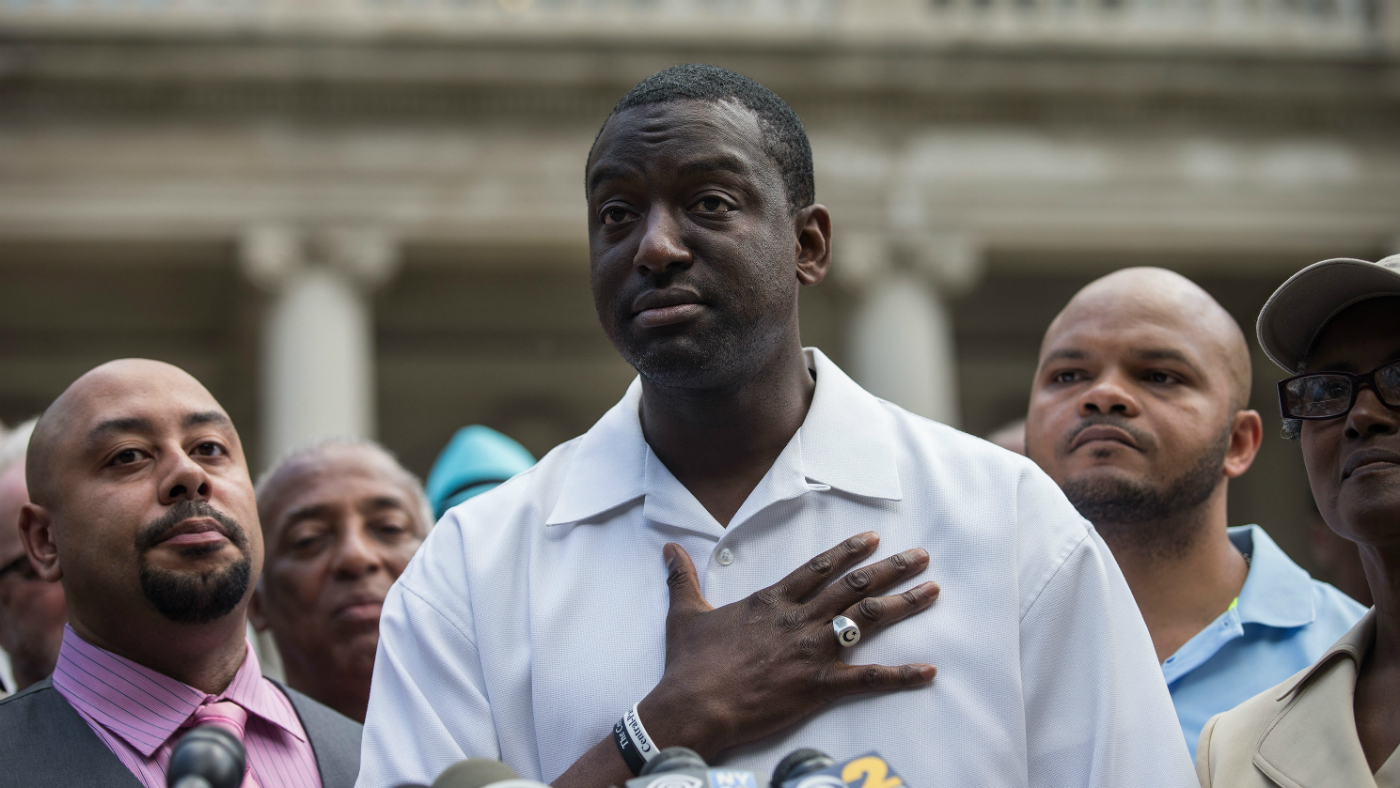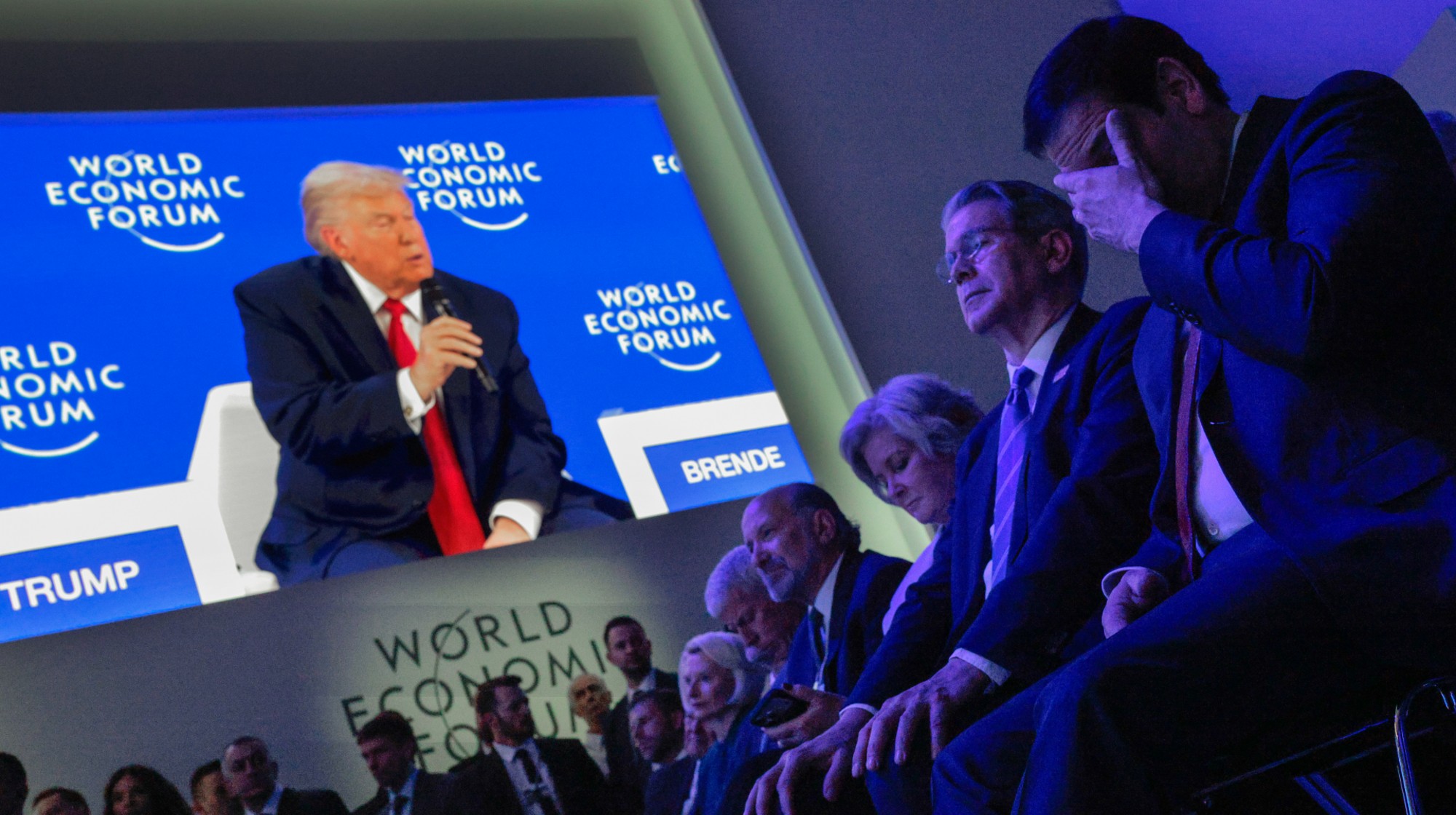Who were the Central Park Five?
New TV series about young men wrongly convicted of 1989 rape is most-watched programme on Netflix

A free daily email with the biggest news stories of the day – and the best features from TheWeek.com
You are now subscribed
Your newsletter sign-up was successful
A new television drama about the so-called Central Park Five has been the most-watched series on Netflix in the US every day since it premiered on 31 May, the streaming service has announced.
Four-part mini-series When They See Us, created by Ava DuVernay, revisits the infamous Central Park jogger case of 1989, when five young men of colour were falsely accused of the rape and assault of a white woman in New York City’s Central Park.
Variety is sceptical about the viewing figure claims, noting that Netflix has “selectively doled out self-reported numbers in the past to tout the popularity of some of its original series and films”.
The Week
Escape your echo chamber. Get the facts behind the news, plus analysis from multiple perspectives.

Sign up for The Week's Free Newsletters
From our morning news briefing to a weekly Good News Newsletter, get the best of The Week delivered directly to your inbox.
From our morning news briefing to a weekly Good News Newsletter, get the best of The Week delivered directly to your inbox.
Nevertheless, says IndieWire, the new show has “seen near-universal acclaim and sparked real-world ramifications” – and has even prompted the resignation this week of a lawyer involved in the prosecution of the young men.
The wrongful conviction of the men became a media sensation that rocked the US and exposed what many saw as deeply rooted prejudices within the country’s law enforcement and judicial networks.
So what happened to the Central Park Five?
The crime
A free daily email with the biggest news stories of the day – and the best features from TheWeek.com
On the night of 19 April 1989, Trisha Meili, an investment banker, was raped and beaten while jogging through New York’s Central Park.
Her body was found at around 1am the next day. Although she survived, Meili was beaten so badly that she was comatose for several days and still has no memory of the attack, ABC News reports.
On the night of the attack, police were called out to break up a group of around 30 black and Latino teenagers who were also in Central Park, but not in the same area as Meili, the BBC says. Five of the youths were arrested in connection with another attack that evening, and police later announced that that they were considered suspects in the assault on the jogger.
Then-chief of detectives Robert Colangelo told The New York Times two days after the attack that the youths “went into the park to do some mischief” and “this mischief led to this tragedy”, despite having no evidence that they had committed the crime.
Trial and the role of Donald Trump
The Public Broadcasting Service (PBS) reports that the ensuing “media frenzy was met with a public outcry for justice”, with now-president Donald Trump becoming one of the most outspoken advocates of seeing the youths jailed.
Just days after the attack, Trump, then a businessman in Manhattan, paid for full-page adverts in four major newspapers calling for the reinstatement of the death penalty over the incident.
People Magazine reports that although the ads did not specifically mention the “Central Park Five”, they did call for a “beefed-up police force and stiffer penalties for offenders”.
Prior to the first trials, which took place in August 1990, the FBI didn’t find a DNA match with any of the five youths on the rape kit, “but the office of District Attorney Robert Morgenthau presented these findings to the press as inconclusive”, says iNews.
The five youths – Raymond Santana, Kevin Richardson, Antron McCray, Yusef Salaam and Korey Wise – confessed to the crime on tape but later retracted their statements after claiming that police had intimidated and coerced them into making them.
PBS says the young men were tried as adults under New York laws of the day – and convicted – “despite inconsistent and inaccurate confessions, DNA evidence that excluded them, and no eyewitness accounts that connected them to the victim”.
In August 1990, Salaam, then 15, Santana, then 14, and McCray, then 15, were each convicted of rape, assault, robbery and rioting in the attacks on the jogger and others in Central Park that night and sentenced to between five and ten years in a youth correctional facility.
In December 1990, Richardson, then 14, was convicted of attempted murder, rape, assault and robbery in the attack on the jogger and others in the park, and sentenced to between five and ten years in a juvenile facility.
Wise, 16, was convicted of sexual abuse, assault and riot in the attack on the jogger and others in the park, and was sentenced to between five and 15 years in adult prison. After the verdict was read out, he reportedly shouted at the prosecutor: “You’re going to pay for this. Jesus is going to get you. You made this up.”
Sentences overturned
In 2002, 13 years after the crime, convicted serial rapist Matias Reyes – who was already serving a life sentence for murder – confessed to attacking and raping Meili. A subsequent police investigation revealed that Reyes’s DNA matched genetic material recovered from the scene.
In December that year, Justice Charles J. Tejada of the Supreme Court of the State of New York granted a motion to vacate (or overturn) the convictions of the five youths, but all of them had by that point completed their prison sentences, and thus the vacation had only the effect of clearing their names.
The following year, the group sued New York City for “malicious prosecution, racial discrimination and emotional distress” in a court case that lasted until 2014, when Bill de Blasio became mayor and the city settled the case for $41m (£32m) despite not admitting to any wrongdoing.
iNews reports that the five men are still pursuing an additional $52m (£41m) in damages from New York State in the New York Court of Claims.
Aftermath
The vacating of the convictions is not a clear-cut issue. Quartz reports that a spokesperson for the New York City Law Department has pointed out that this decision “did not mean the Central Park Five had been cleared of wrongdoing, simply that they were entitled to a new trial”, and this week former prosecutor Linda Fairstein, who built the case against the defendants, called When They See Us “a series so full of distortions and falsehoods as to be an outright fabrication”.
Elizabeth Lederer, the lead prosecutor in the case, said on Wednesday that she would not return as a lecturer at Columbia Law School, claiming that the mini-series had “reignited a painful — and vital — national conversation about race, identity, and criminal justice”.
“Given the nature of the recent publicity generated by the Netflix portrayal of the Central Park case,” the statement in The New York Times said, “it is best for me not to renew my teaching application.”
Donald Trump is one of few people who has refused to reverse his stance on the issue since 1989. During his presidential run in 2016, he reinforced his earlier position, telling People Magazine: “They admitted they were guilty. The police doing the original investigation say they were guilty.”
-
 Democrats push for ICE accountability
Democrats push for ICE accountabilityFeature U.S. citizens shot and violently detained by immigration agents testify at Capitol Hill hearing
-
 The price of sporting glory
The price of sporting gloryFeature The Milan-Cortina Winter Olympics kicked off this week. Will Italy regret playing host?
-
 Fulton County: A dress rehearsal for election theft?
Fulton County: A dress rehearsal for election theft?Feature Director of National Intelligence Tulsi Gabbard is Trump's de facto ‘voter fraud’ czar
-
 Epstein files topple law CEO, roil UK government
Epstein files topple law CEO, roil UK governmentSpeed Read Peter Mandelson, Britain’s former ambassador to the US, is caught up in the scandal
-
 Iran and US prepare to meet after skirmishes
Iran and US prepare to meet after skirmishesSpeed Read The incident comes amid heightened tensions in the Middle East
-
 Which way will Trump go on Iran?
Which way will Trump go on Iran?Today’s Big Question Diplomatic talks set to be held in Turkey on Friday, but failure to reach an agreement could have ‘terrible’ global ramifications
-
 Israel retrieves final hostage’s body from Gaza
Israel retrieves final hostage’s body from GazaSpeed Read The 24-year-old police officer was killed during the initial Hamas attack
-
 China’s Xi targets top general in growing purge
China’s Xi targets top general in growing purgeSpeed Read Zhang Youxia is being investigated over ‘grave violations’ of the law
-
 Ukraine, US and Russia: do rare trilateral talks mean peace is possible?
Ukraine, US and Russia: do rare trilateral talks mean peace is possible?Rush to meet signals potential agreement but scepticism of Russian motives remain
-
 Panama and Canada are negotiating over a crucial copper mine
Panama and Canada are negotiating over a crucial copper mineIn the Spotlight Panama is set to make a final decision on the mine this summer
-
 Trump backs off Greenland threats, declares ‘deal’
Trump backs off Greenland threats, declares ‘deal’Speed Read Trump and NATO have ‘formed the framework for a future deal,’ the president claimed